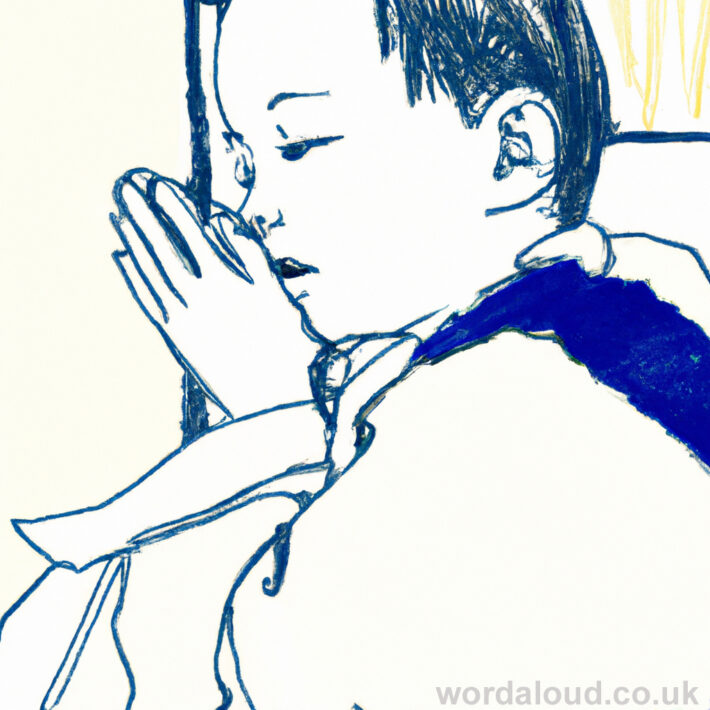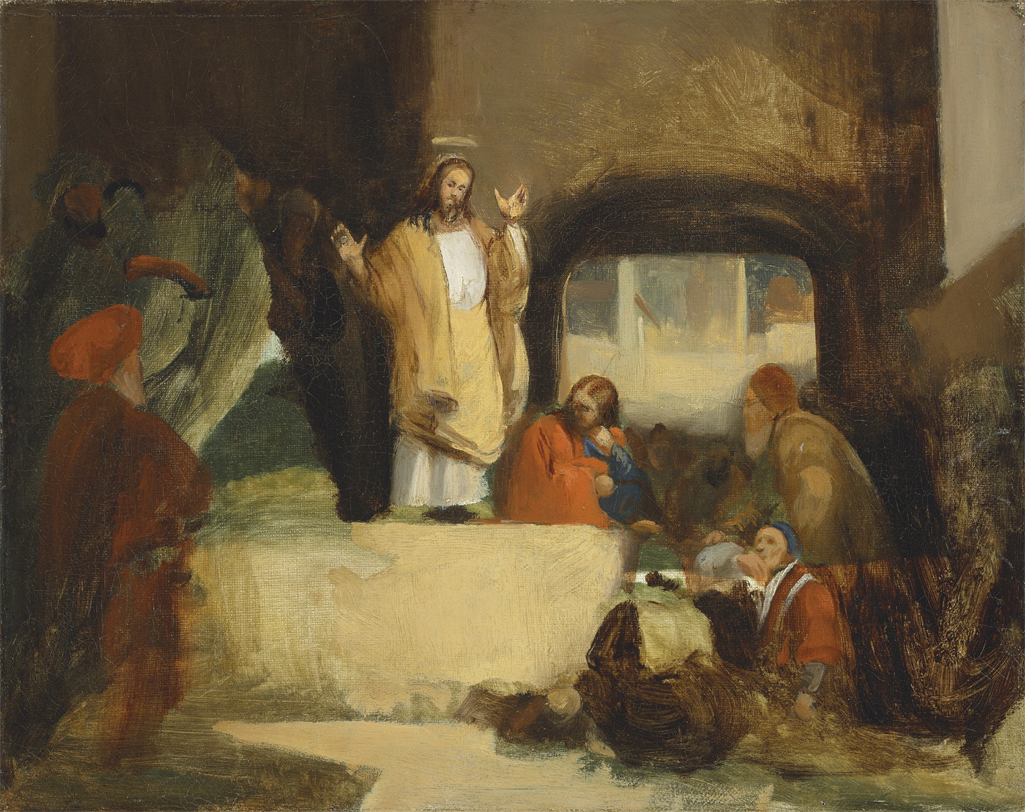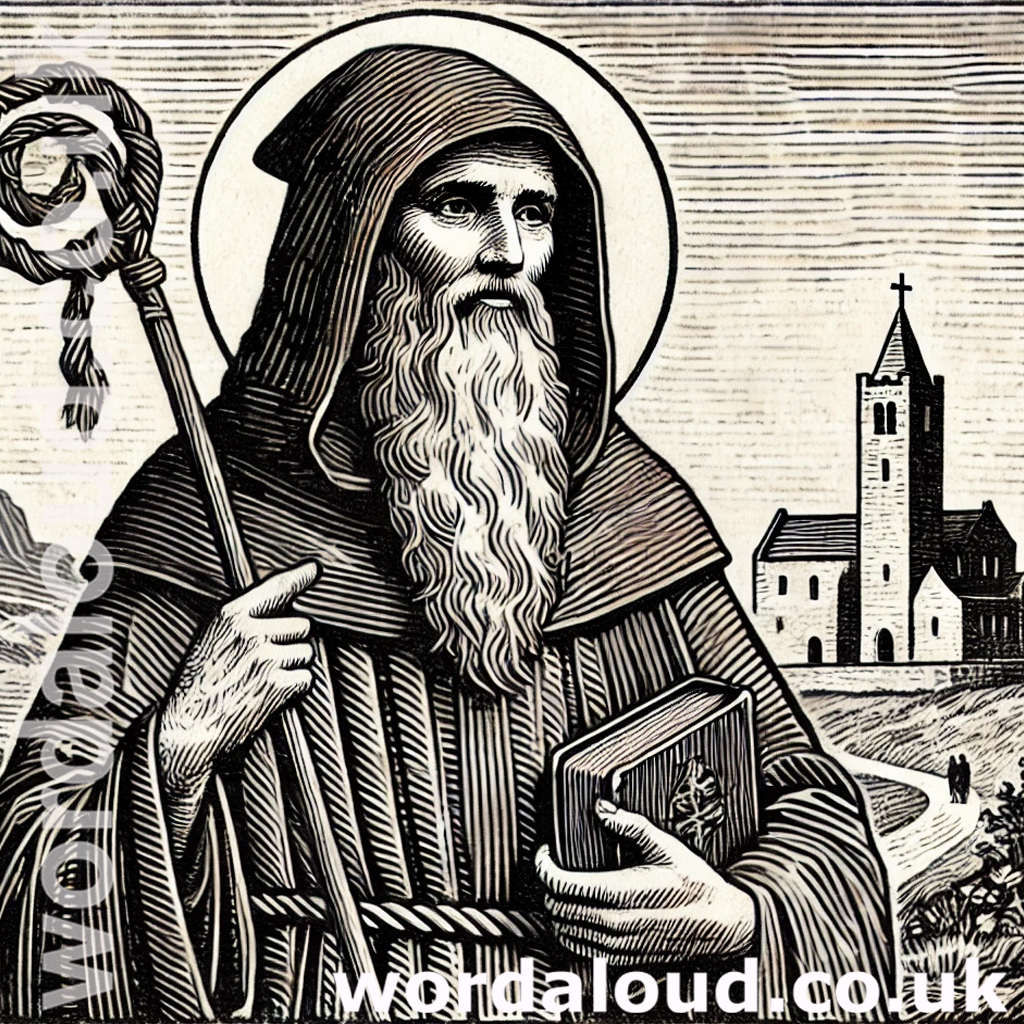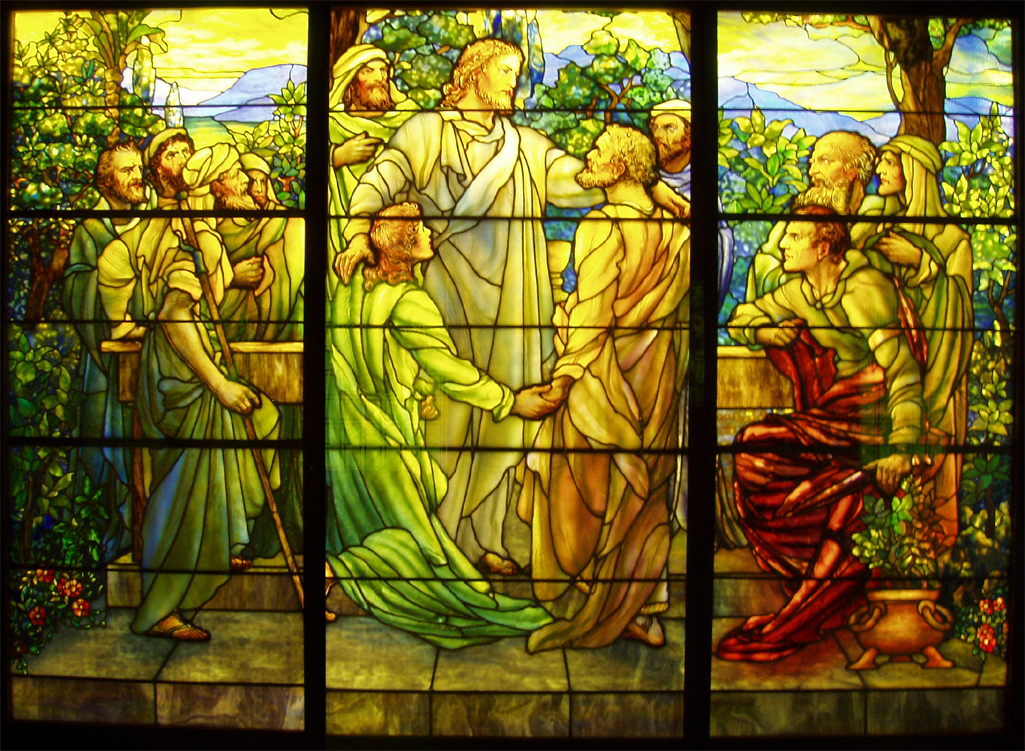Christian Art | Prayer With Jesus | Psalms | National Lament And Prayer For Help | King David As A Boy | Psalm 44 KJV | Audio Bible
Psalm 44 | King James Audio Bible
YouTube: Psalm 44 KJV | King James Version | Audio Bible | Word Aloud
Psalm 44 is an expression of tension between faith and adversity. It wrestles with the question of why suffering exists despite unwavering devotion to God. It is a poignant reminder that faith does not exempt individuals from trials and tribulations but rather serves as an anchor during these challenging times, keeping hope alive in the midst of uncertainty.
Reflecting on God’s Past Deeds: The psalm begins by recalling the remarkable deeds of God in the past, the stories handed down through generations of how God had driven out heathen nations, planted His chosen people, and granted him favor through His divine intervention. These memories serve as a foundation for the psalmist’s trust in God.
A Cry for Help and Justice: The tone shifts as the psalmist beseeches God to intervene in his current plight. Despite his faith, he finds himself surrounded by enemies who oppress and shame him. The psalmist pleads for God’s deliverance, invoking His name as his source of strength against those who rise against him.
A Solemn Vow of Allegiance: In the midst of adversity, the psalmist expresses his allegiance to God, acknowledging Him as his King and Protector. He declares his reliance on God’s divine intervention rather than trusting in human strength or weaponry.
Facing Hardships with Faith: The psalmist candidly acknowledges the hardships he is enduring. He feels abandoned by God, with his prayers seemingly unanswered. Yet, he maintains his commitment to God’s covenant, affirming that his heart remains true to His ways.
A Questioning of Divine Silence: The psalmist’s lament extends to questioning why God seems silent and distant in his time of need. He wrestles with the apparent lack of divine intervention, wondering why his enemies prosper and he suffers.
A Cry for Redemption: In the final verses, the psalmist passionately implores God to awaken from His apparent slumber, to cast aside His silence, and to redeem him from his afflictions. He appeals to God’s mercy and compassion as he seeks deliverance from his distress.
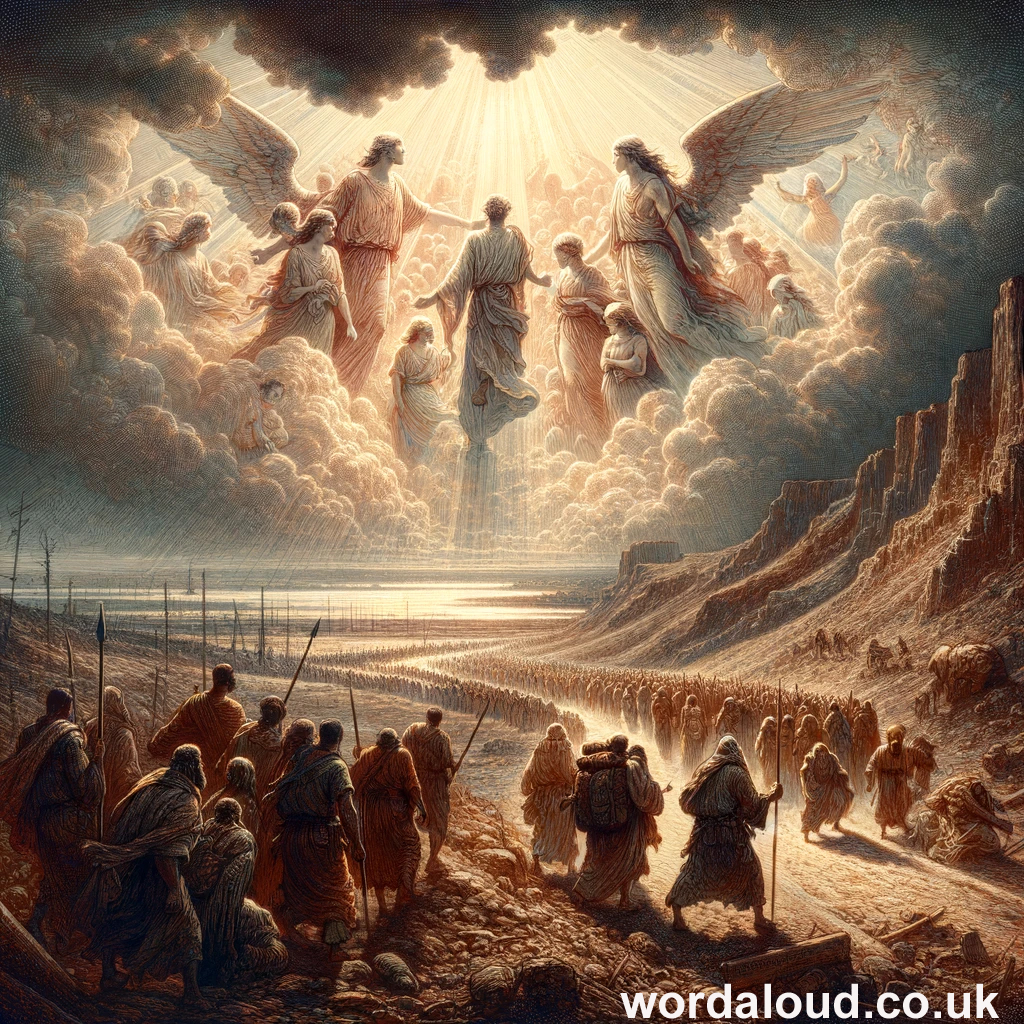
Psalm 44 | King James Audio Bible
We have heard with our ears, O God, our fathers have told us, what work thou didst in their days, in the times of old.
How thou didst drive out the heathen with thy hand, and plantedst them; how thou didst afflict the people, and cast them out.
For they got not the land in possession by their own sword, neither did their own arm save them: but thy right hand, and thine arm, and the light of thy countenance, because thou hadst a favour unto them.
Thou art my King, O God: command deliverances for Jacob.
Through thee will we push down our enemies: through thy name will we tread them under that rise up against us.
For I will not trust in my bow, neither shall my sword save me.
But thou hast saved us from our enemies, and hast put them to shame that hated us.
In God we boast all the day long, and praise thy name for ever. Selah.
But thou hast cast off, and put us to shame; and goest not forth with our armies.
Thou makest us to turn back from the enemy: and they which hate us spoil for themselves.
Thou hast given us like sheep appointed for meat; and hast scattered us among the heathen.
Thou sellest thy people for nought, and dost not increase thy wealth by their price.
Thou makest us a reproach to our neighbours, a scorn and a derision to them that are round about us.
Thou makest us a byword among the heathen, a shaking of the head among the people.
My confusion is continually before me, and the shame of my face hath covered me,
For the voice of him that reproacheth and blasphemeth; by reason of the enemy and avenger.
All this is come upon us; yet have we not forgotten thee, neither have we dealt falsely in thy covenant.
Our heart is not turned back, neither have our steps declined from thy way;
Though thou hast sore broken us in the place of dragons, and covered us with the shadow of death.
If we have forgotten the name of our God, or stretched out our hands to a strange god;
Shall not God search this out? for he knoweth the secrets of the heart.
Yea, for thy sake are we killed all the day long; we are counted as sheep for the slaughter.
Awake, why sleepest thou, O Lord? arise, cast us not off for ever.
Wherefore hidest thou thy face, and forgettest our affliction and our oppression?
For our soul is bowed down to the dust: our belly cleaveth unto the earth.
Arise for our help, and redeem us for thy mercies’ sake.
Psalm 43 | King James Audio Bible KJV | Love Revealed By Jesus Christ
- Reflection on God’s Past Deeds: The psalmist begins by recalling God’s remarkable deeds in the past, emphasizing divine intervention and favor in the history of their people.
- A Cry for Divine Help: Despite their unwavering faith, the psalmist finds themselves in distress, surrounded by enemies. They cry out to God for deliverance and intervention in their current plight.
- Allegiance to God: The psalmist affirms their allegiance to God, acknowledging Him as their King and Protector. They rely on divine intervention rather than human strength.
- Faith Amid Hardships: While enduring hardships and feeling abandoned, the psalmist maintains their commitment to God’s covenant, emphasizing the fidelity of their heart to His ways.
- Questioning Divine Silence: The psalmist questions why God seems silent and distant during their time of need, pondering the prosperity of their enemies in contrast to their suffering.
- A Plea for Redemption: In the final verses, the psalmist passionately implores God to awaken and redeem them from their afflictions, appealing to God’s mercy and compassion.

